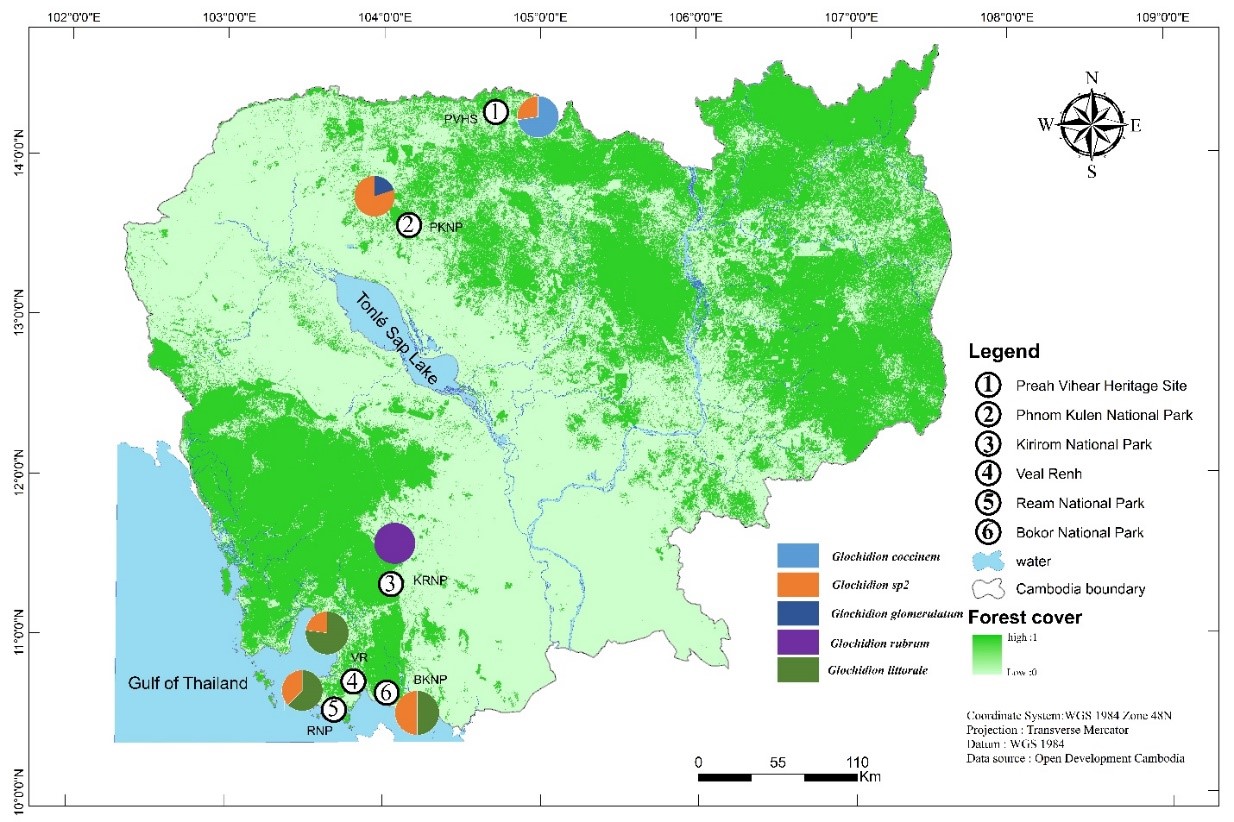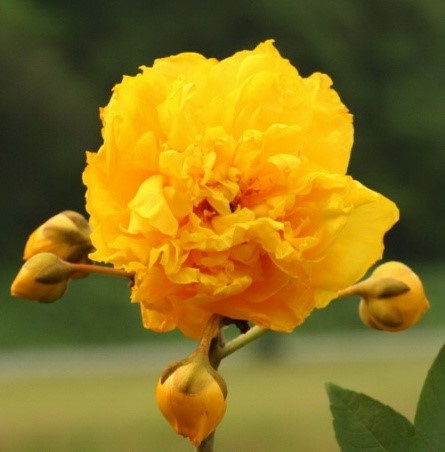

Under the instruction of Prof. Luo Shixiao, Prof. David H. Hembry and Dr. Gang Yao, Pisal Chheang is a Cambodian graduated master student in field of botany and the first person who reported the first detail information of pollination system of species-specificity of brood pollination of leafflower tree (Glochidion) by leafflower moths (Epicephala) from Cambodia, center of diversity of Glochidion.
To understand the evolution of specialization, the association between Glochdion and Epicephala have been increased the interest of evolutionary biologist and used as a model study system. Glochidion is monoicous tree in family of Phyllanthaceae which consists of over 300 described species worldwide and it is pollinated by specialized pollinator, Epicephala moths. At night, the female flowers of Glochidion species volatile its pleasant odor to attract Epicephala moth for pollination. When detected the Glochidion tree, female Epicephala moth started to collect numerous pollen from male flower then flied to female flower for pollination. After pollination, Epicephala moth oviposit its eggs to pollinated flowers to ensure their offspring can eat subset of Glochidion seeds. This pollination behavior has been reported from the locations around the margins of global distribution of Glochidion in the Asia-Pacific region.
Due to lacking information of basic biological observation of Glochidion and Epicephala and the biology of this interaction from the center of diversity of Glochidion in tropical Southeast Asian Countries, the Authors designed a research questions and methods. Pisal Chheang performed this research.
In this study, the authors addressed the key finding of investigation of pollination biology of Glochidion trees in tropical Southeast Asia (Cambodia). Also, each Glochidion species appears to be pollinated by a single species of Epicephala moth across sites in Cambodia and moth larvae consume host seeds but number of larvae per fruit and seeds eaten by larvae vary among species. Indeed, ecology of this mutualism in Cambodia same as reported in subtropical or temperate Asia and Australia and the costs of mutualism to host Glochidion (seed loss) likely vary among host-pollinator species pairs. These findings provide insights into the processes that generate and maintain biodiversity and mutualism stability in plant-insect interactions in this biodiversity hotspot.

Fig.1 Map of study areas which are five Glochidion species distributed.

